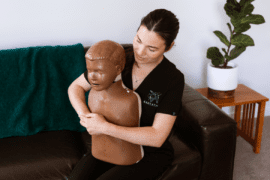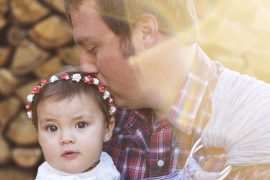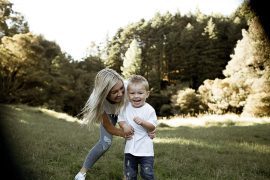In addition, 27% say they have access to valuable external support such as close and extended family, friends, childcare centres, along with after-school care.
However, 14% disagree. Some feel unable to predict what their kids will need in the future; others feel they lack the finances required to support their children, or lack confidence to effectively manage their kids’ mental health.
And, not surprisingly, times are changing. More than half of parents surveyed said their kids are more socially aware than they were at their age (63%) on issues like the environment, mental health and gender identity. This was even prevalent in parents of preschool aged children (53%).
Concerns for the future
The cost of living was revealed as parents’ biggest concern for the future (67%), followed by mental health issues (40%) and climate change (33%).
Wealth inequality (20%), physical health (16%) and prejudice (14%) were the next largest points of worry. One respondent said: “I sometimes worry that they won’t have the tools they need to cope with life stresses. Mostly the changing climate and all that it entails.”
The survey also highlights different ways in which uncertainty sits within ethnic groups: 22% of Asian parents named education as their top concern for the future (nearly double the national figure), and nearly a quarter (24%) of Pacific Island parents worry about their child’s future success or financial security (versus 11% for all parents). Asian (24%) and Māori (23%) parents are also more concerned about their children facing prejudice (versus 14% of all parents).
Nathan Wallis, nib’s resident parenting expert, reminds parents about the importance of working in collaboration with their children to find a brighter path ahead.
“It’s important to remember that our kids live in a fast-moving world,” Mr Wallis said. “And it may feel scary that it’s very different to the one we were raised in, but it is vital to navigate it together.
“The data reiterates that tamariki are tuned in to socio-political issues, so practise open communication and ask them what’s important or concerning in their lives to better understand how you can support them.
“And don’t forget that modelling positive behaviour is a powerful thing. Making proactive lifestyle changes and talking openly about emotions is great role-modelling, so kids can see their parents take health and wellbeing seriously,” he said.
[1] Survey conducted between 9 September – 7 October 2022.
To find out more about nib, head to their website and follow them on Facebook and Twitter.










